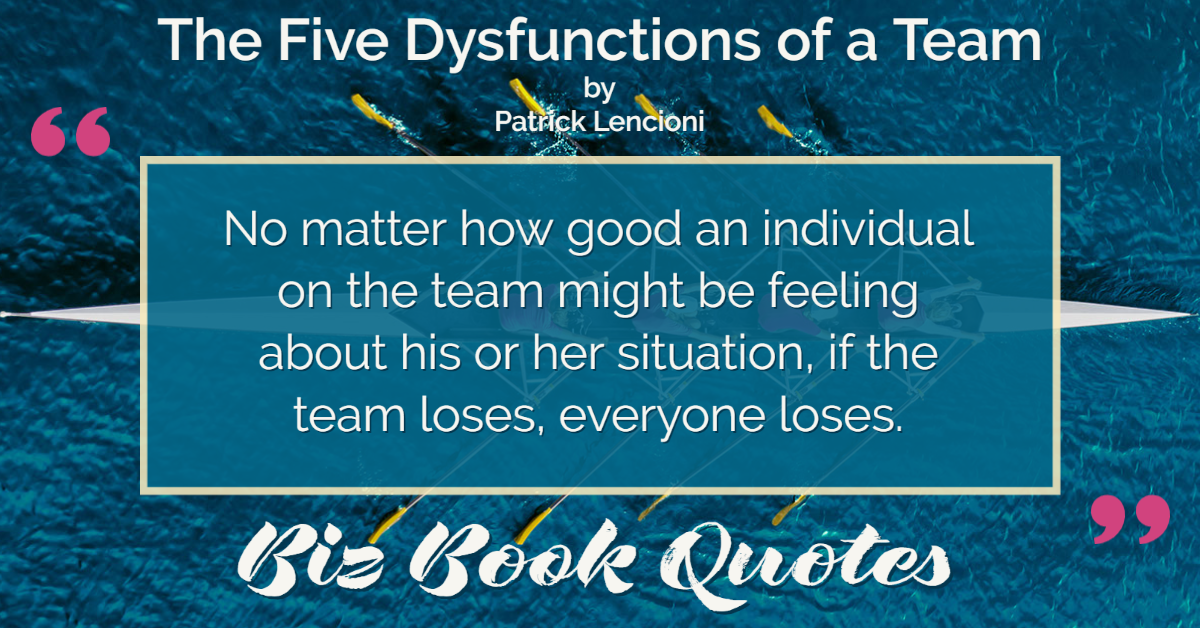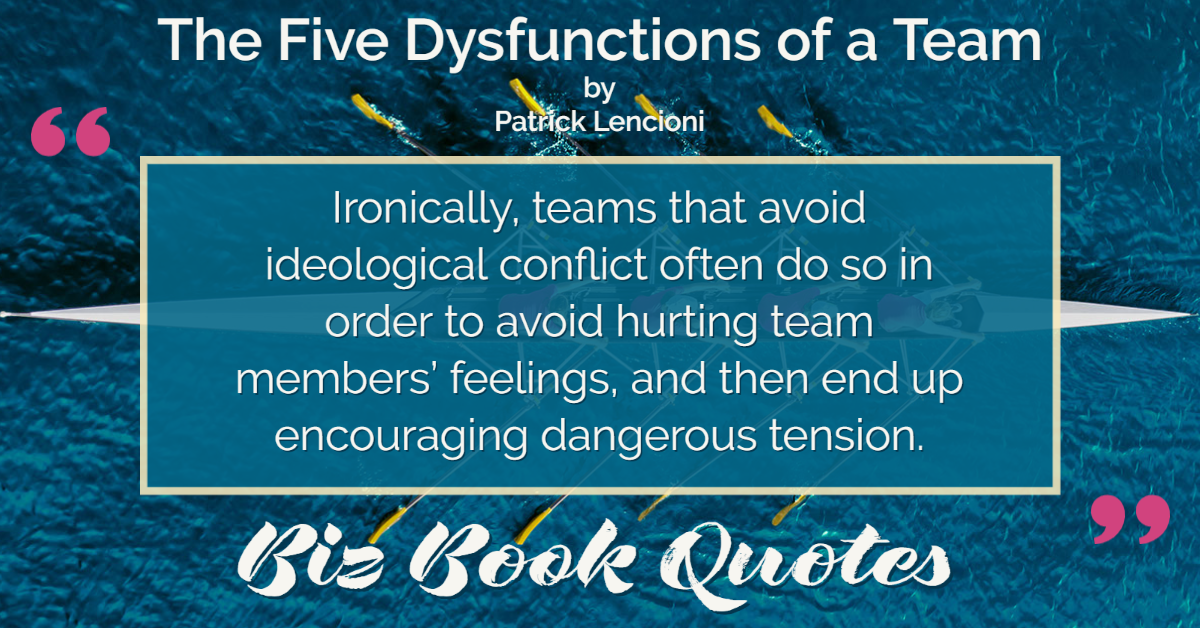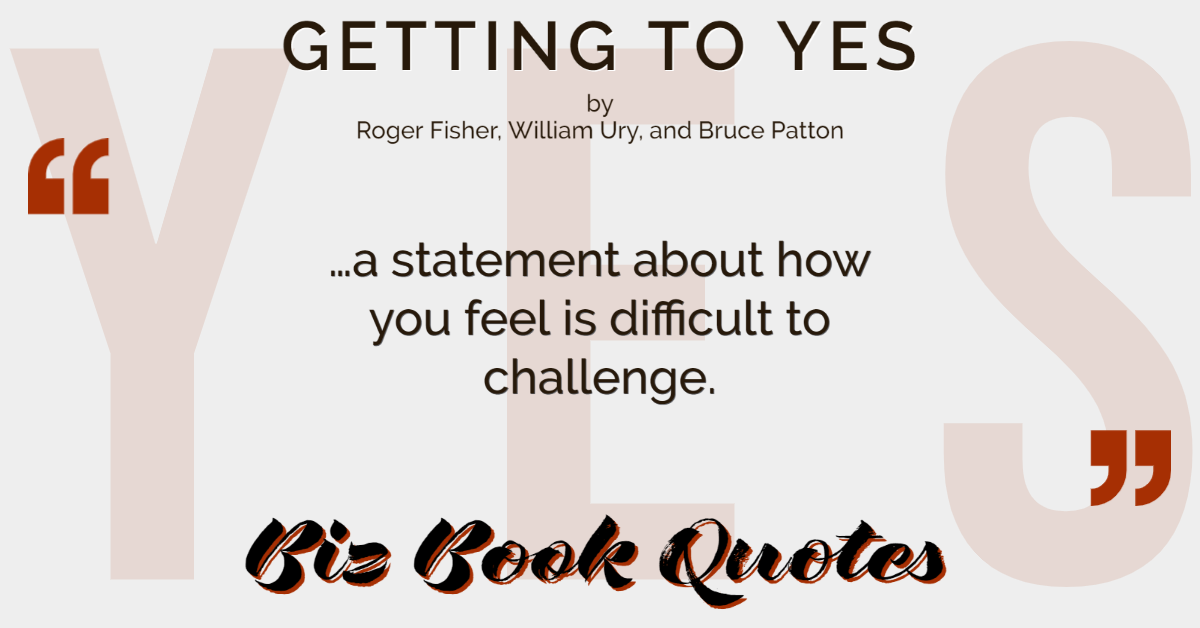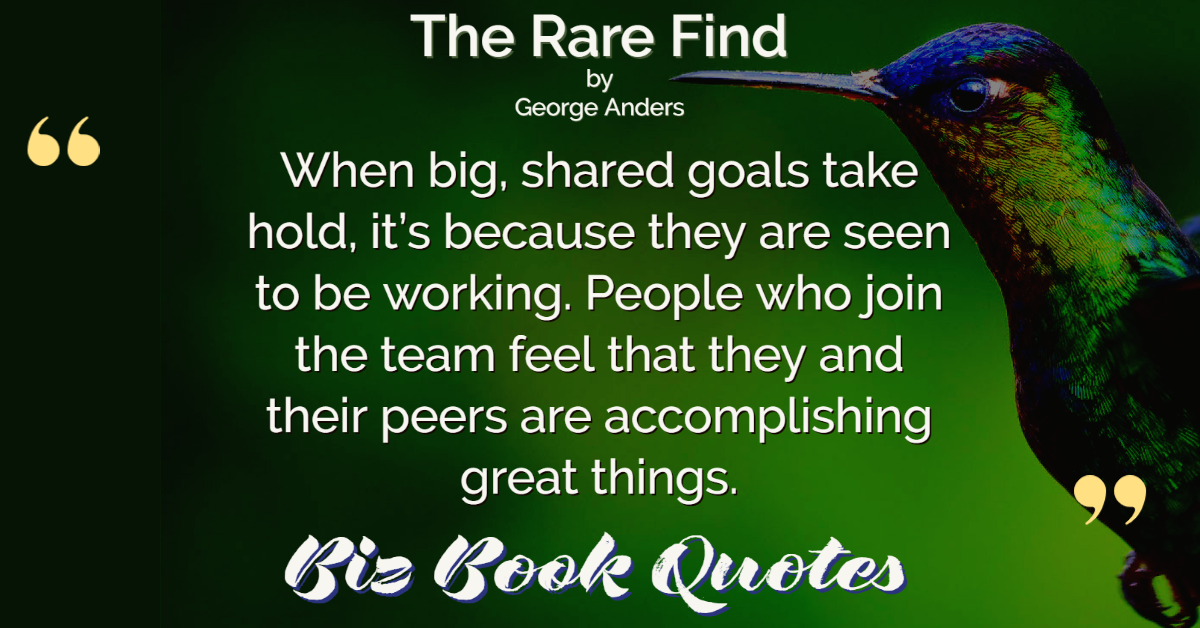 |
No matter how good an individual on the team might be feeling about his or her situation, if the team loses, everyone loses.
|
72 |
 |
Ironically, teams that avoid ideological conflict often do so in order to avoid hurting team members’ feelings, and then end up encouraging dangerous tension.
|
203 |
 |
Unfortunately, when it comes to our own knowledge and opinions, we often favor feeling right over being right.
|
18 |
 |
It is a sign of wisdom to avoid believing every thought that enters your mind. It’s a mark of emotional intelligence to avoid internalizing every feeling that enters your heart.
|
68 |
 |
In a productive conversation, people treat their feelings as a rough draft. Like art, emotions are works in progress. It rarely serves us well to frame our first sketch.
|
180 |
 |
Often in a negotiation people will continue to hold out not because the proposal on the table is inherently unacceptable, but simply because they want to avoid the feeling or the appearance of backing down to the other side.
|
31 |
 |
Making your feelings or theirs an explicit focus of discussion will not only underscore the seriousness of the problem, it will also make the negotiations less reactive and more ‘pro-active.’
|
33 |
 |
…a statement about how you feel is difficult to challenge.
|
39 |
 |
…highly capable people abandon places where the mission feels flawed or contrived.
|
194 |
 |
When big, shared goals take hold, it’s because they are seen to be working. People who join the team feel that they and their peers are accomplishing great things.
|
195 |